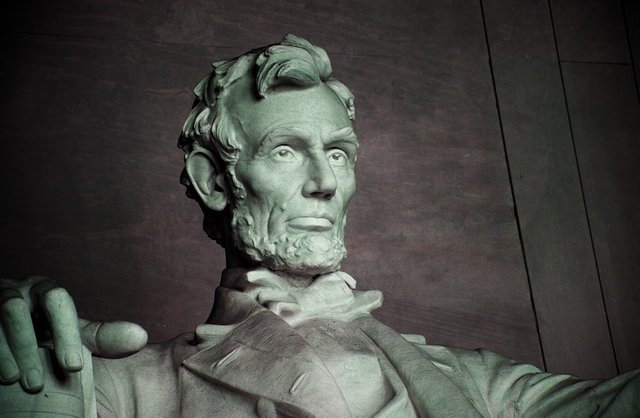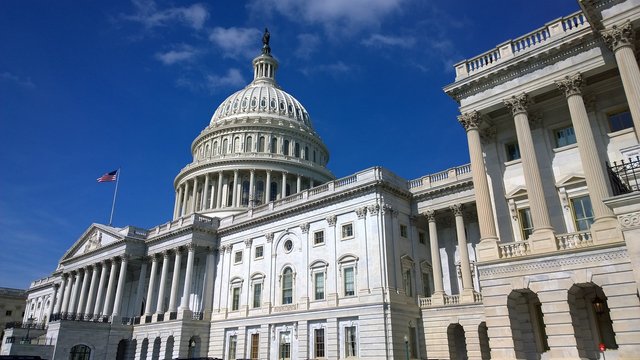The Beautiful Lie of Democracy and a direct republic: Part 1

by our friend Donnie Gebert
If you were looking for your car keys and, after a few minutes of searching, you found your keys, went to your car, started it, and drove away, it would be extremely difficult to tell you that you did not find your keys. Convincing you that those were your keys would be easy; they performed all the desired actions after you'd found them. If I suggested that you search again, for the keys you were holding, you'd have every reason to think I was a simpleton or having an episode.
You definitely had keys that functioned but were they the keys that you wanted? The keys to the vehicle you picked up only functioned with certain roads, only functioned in certain ways, had costs that were going to be paid for, and none of any of that was really up to you; you were told that it ‘is the way it is’ and, maybe, you haven't demanded more. The keys, your agency, were given to you in the form of a vote. That vote seems to work in the vehicle of state and it appears to get you where you need to go. Are you where you want to be, politically? Despite the constant complaints that the vehicle of state is uncontrollable, you're told that you hold the keys. If you have a vote, you have the agency you need to control your life. It's a Nixonesque credibility level, at best.

That's the real trick in crafting a beautiful lie. When you can convince someone that they already have what they need, and they cease to look for anything else, to include something better; that lie has been accepted and will, most likely, never be questioned again. When will you have the adulting moment required to admit that the mechanics and the theory of democracy and our current system are articulate lies? When will you admit that your agency has been stolen from you and replaced with a vote and that the vote is a terrible vehicle to exercise agency in a society, to yourself if no one else? How is it that a system "we" want in place does things most of us don't want? Why would machinations exist that we don't desire? Is this not fixable? When will we admit that the only people who can change this are the living and let the works of the Framers no longer be the eternal mandate? It's time to put down their words, contexed in a time best described as less than 3/5 tolerable, and pick up their example, do it yourself.
I was an intelligence analyst in the military. All solutions are just strategies, comprised of tactics, that fit their terrain and environment with the available assets to accomplish their preferred end state. The end. Insurmountable problems are for politicians and actors; everything else has an ass waiting to be kicked. So, I’m going to lay out a strategy called 'a direct republic'. This is to be assumed to fit in the geography of the US circa 2018 but will procedurally dissolve the geographical component of a legal system, by titrating one to the next in one of several non-disastrous methods. The legal systems would then appear, on a map, to look like Amazon and Netflix subscriptions; the defense map doesn't change. If you cannot separate your understanding of law with a de facto geographical bailiwick, this will be a hard read; just understand that laws do not require a geography as a defining characteristic and if they do not, it does not fit a MVP standard. Different organizational methods appear obtuse at first; approach new methods like Jane Goodall, not Jeff Sessions, for your sake. If you cannot entertain details of a large idea w/o knowing the end, the last paragraph under 'The Executive' gives you the end state to assemble both ends at the same time, if you operate like that. (I do.)
A direct democracy is already known for its flaws that spiral into mob rule. The current constitutional model has been one of the better governance models for the last two centuries however is showing the stresses of time against legacy organizational models in a digital age. I assess this as being primarily from Article 1 Section 8 of the US Constitution, secondarily from the 'people who lived 250 years ago wrote this for you without your consent' aspect. The methodology contained therein is the exact method that destroys Venezuela as I write this, socialism. Taxation doesn't provide the needed feedback to financially drive any enterprise; you'll pay for that which is mandated, not that which is needed. The government then suffers from either MG42 or F35 syndrome, quality product with impractical or logistically unsustainable realities or a 200-congressional district debacle, usually the latter. This raised a question to me 'why not both?'. What about a direct republic? Upon some research I discovered that no such thing existed despite appearing to be an obvious solution, at least dialectically. This led me down a rabbit hole of governance models and legal concepts that lasted about 18 months.
What is a republic? You'd be surprised how nondescript the majority of definitions are. They seem to be assembled out of marshmallow and hope. Historically, all governance models seem to have a democratic component, for pragmatic reasons. It's not 'the plan'; it's the way to determine waypoints in a process, like throwing a switch on train tracks. The logical problem with this is that if all republics require a democratic function, then all republics are a derivative of democracy and not a standalone system. This bothered me because I had never really heard a republic described as a type of democracy, just lashed to it for, supposedly, rational reasons. Much of the research that I did boiled down to 'how to disassemble all of the legal and political machinations of any given system' to determine its defining characteristics, the things that make something different from something else; the tactics comprising each legal strategy.
Turns out, democracy is one of the simplest concepts you could possibly get your hands on. "All those in favor, raise your hand" sums it up completely. Democracy equals voting, and voting is a very simple and crappy method of conflict resolution. There is a winner and a loser; the end. The reason this method is garbage is because it does several things that a conflict resolution system need not do. The primary thing it does is limit the number of solutions. If you want to control people, not organize them, you have to limit the number of options they can choose from otherwise they're just doing it themselves. To every vote there should be A, B, both, and neither as potential options, assuming there were only two base options. Our current system does not allow a both or neither option, nor does it functionally allow for as many options as are desired and doesn't allow the right to abstain, the most important right. Regardless of options, there will be only one solution; this method will determine what one solution will be funded and/or permitted to continue, monopoly mechanics.
A republic, however, does not inherently seem to require a Democratic component. A republic revolves around a forum of public debate and presentation. The myriad of republics on earth right now demonstrate that many different conflict resolution systems are compatible with the concept of a republic and there is no inherent need for voting. Provided that the agency of the individual in the process is preserved without voting, the removal of a vote would be preferred to ensure that there were no losers in a process that does not inherently require one.
Next, I took to my whiteboard. I needed a strategy to instill the directness of a direct democracy without all the limited outcomes while preserving all of the rights that a republic was designed to protect...... keeping in mind that reality was outside the whole time and that starting from scratch is not an option. A transitional strategy, similar to the events surrounding the fall of the Berlin wall, would be required to transition an organization as large as the US federal enterprise.
How does one preserve the rights and options of hundreds of millions of people? Minimum viable product is how. No frills, bare bones functioning on a budget, with rights intact. This is what i came up with for a ‘direct republic’.
What are your thoughts on this? Let me know in the comments below! And stay tuned for part 2!
Also on our website: https://emancipatedhuman.com/beautiful-lie-democracy-direct-republic-part-1/
muy educativo, aprender un poco mas de historia politica, nos ayuda a entender mejor como es este mundo
claro, gracias!